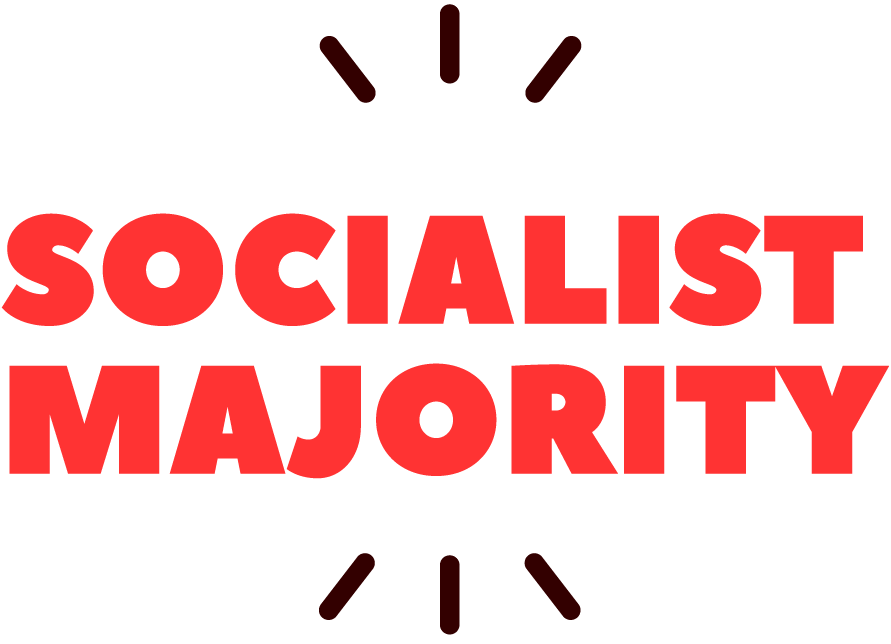DSA Doesn’t Need a President
The Bread and Roses Caucus have put forward a bylaw amendment that would completely overhaul how DSA appoints our National Director (ND). Currently, our ND - like all DSA staff - is appointed by the National Political Committee, our leadership. This proposed Bylaw Amendment #4 (BA #4) would make it so that the ND would be elected by DSA delegates during our biennial conventions.
Those who support this amendment claim it is about “expanding our internal democracy,” but its ultimate effect is to create a President for DSA - a single person with an outsized role in shaping the political direction of the organization.
Conventions Are Not the Best Venues To Make Good Hires
The national director directly manages dozens of staff and has a key role in implementing the political decisions of the NPC and delegates. Major hires such as a national director should be done through a thoughtful process that includes multiple interviews, backgrounds, and seeing if they would be a good fit with existing staff members - responsibilities that are taken up by our elected NPC. If we hire the national director at convention, we forgo that entire process.It is too risky when hiring for a single full-time leadership position to use a system that doesn’t carefully weigh their skills, background, and administrative capabilities.
It Will Introduce the ND to Factionalism
If the ND election becomes a competitive one, our acting ND will have to add campaigning for votes both before and during the convention to their workload, and as our organization grows so will the number of delegates whose votes they will need to secure. Making the ND directly elected will force them to engage directly with factional and caucus politics in the national and local leadership of the organization - exactly the types of factional conflicts we should seek to insulate staff from.
Perverse Incentives
What is great about DSA is that it separates the democratic roles from the staff roles. Staff, remember, cannot vote on board members, in their chapters, and cannot join caucuses. Their roles exist to serve the entire membership. If the staff is directly supervised by someone whose job relies on campaigning for political support, it will create dramatic pressure to politicize the work of the staff. It should also be acknowledged that the incumbent would have access to information that the potential challengers would not, and this would create power-brokers that are less accountable to the elected board and able to reward themselves and others through patronage. While Bread and Roses argue this will make the organization “more democratic” in practice this bylaw would do the opposite.
This Amendment Speaks For Our Staff W/O Speaking To Them
Does our staff want to risk having a new boss every 2 years? How will potentially rotating leadership affect their ability to do their jobs? Asking staff to work under potentially unstable and politicized supervision is setting them up for failure. Overall, this structure is not going to increase staff capacity and would likely lead to more tensions than it is worth.
The Amendment is Based on Ungrounded Arguments
We also contend that there are deep flaws in the arguments being made for this resolution, not just with the potential consequences. See this section:
While the National Director has been viewed as a mostly administrative position, we should recognize that the director’s direct control over DSA’s multi-million budget, dozens of staff, and media prominence makes it an important political leadership position, and it should be treated as such.
A reasonable reading of this would lead one to think the national director hires, makes budgetary decisions, and speaks for DSA alone. This is far from the truth and elides the responsibility the NPC has. The National Political Committee reviews the ND’s performance, interviews candidates and approves all staff hires, and approves the budget. Meanwhile, the national director cannot spend more than $5,000 without NPC approval. Currently Maria Svart, as an example, defers tremendously to other staff and elected leaders for national calls and media presence. It is hard to think of another executive in a similar position that does so. The realities on the ground do not match the amendment’s contentions.
There Are Better Ways to Make DSA More Democratic
We all want DSA to be a more democratic organization. But that does not mean we turn our organization’s staff into another center of voting, whipping, and factionalism. We need spaces that are run by our democratically elected leadership - where the organization’s work is enacted not just by the DSA employees, but chapters, working groups, and other member-leaders. It makes more sense to spend energy building new democratically accountable bodies that will represent members at the state level than turning our highest staff position into a continuous two-year political race.
Better time is spent by the NPC making the existing workings of our national leadership, our rules, and decisions more transparent, and creating space for more member engagement. Members should know more about the responsibilities of staff and those of the elected leadership and should be able to evaluate how they carry out the political priorities set at DSA’s conventions. Creating a single elected president for DSA who plays an unparalleled role in shaping the political direction of the organization is not the path to democratizing DSA.
--
James J. Jackson is a poet and the former co-chair of Sacramento DSA.
David S. Duhalde is a former NPC member and DSA staffer.
